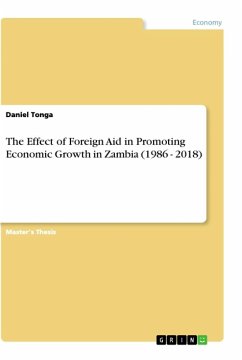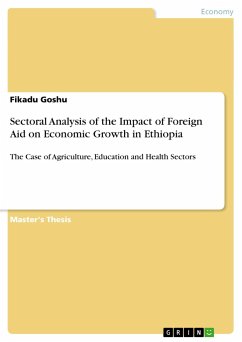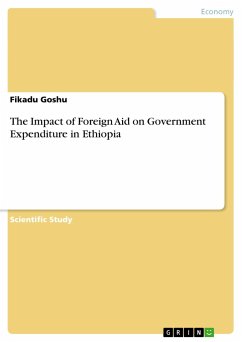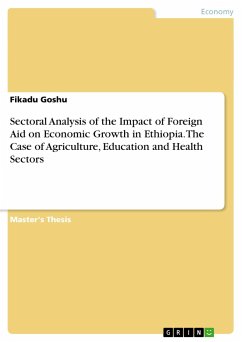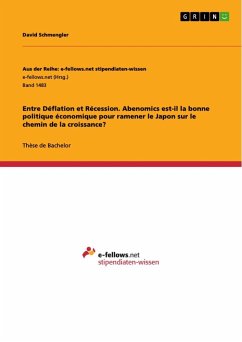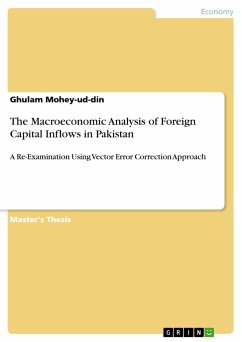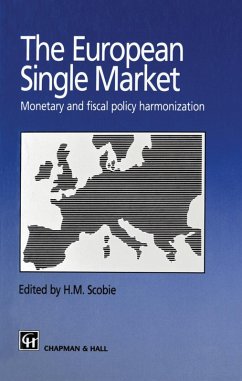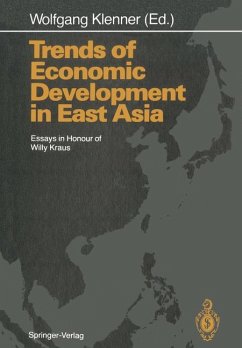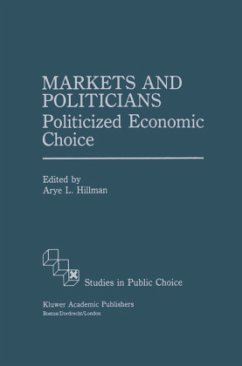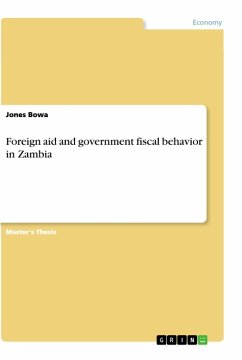
Foreign aid and government fiscal behavior in Zambia

PAYBACK Punkte
0 °P sammeln!
Master's Thesis from the year 2016 in the subject Economics - Case Scenarios, grade: Great Distinction, University of Antwerp (Institute of Development Policy and Management (IOB)), language: English, abstract: The paper investigates the relationship between foreign aid and government fiscal behavior. An overview of the global trend of foreign aid flows over the last few decades is provided, as well as literature and research on fiscal response studies that have aimed to examine how these aid flows influence the fiscal decisions of aid recipient governments. The paper assesses the impact of fo...
Master's Thesis from the year 2016 in the subject Economics - Case Scenarios, grade: Great Distinction, University of Antwerp (Institute of Development Policy and Management (IOB)), language: English, abstract: The paper investigates the relationship between foreign aid and government fiscal behavior. An overview of the global trend of foreign aid flows over the last few decades is provided, as well as literature and research on fiscal response studies that have aimed to examine how these aid flows influence the fiscal decisions of aid recipient governments. The paper assesses the impact of foreign aid flows on fiscal aggregates, taking into focus the case of Zambia. In particular, the paper goes into detail examining how government investment, consumption, revenue, and domestic borrowing are associated with both aggregated and disaggregated aid.The paper adopts a quantitative approach in its analysis. A Vector Error Correction approach was used to estimate the relationship between foreign aid and fiscal aggregates data for Zambia over the period 1970-2014. The econometric estimation used annual data and analyzed both short-run and long-run effects.The following were the findings:Foreign aid flows were found to be positively associated with government investment, consumption, and domestic borrowing. While government revenue was negatively associated with foreign aid. In the short-run, it was observed that grants were used to reduce the level of the country's domestic debt stock. Whereas, net foreign loans were seen as a substitute for domestic revenues and were used to finance the budget deficit.The paper concluded by providing a number of recommendations that suggested improvement in government's revenue mobilization efforts, effective management of the country's domestic debt, and the deliberate action to direct revenue resources towards investment expenditure. In order to achieve sustained growth and ensure the effective use of aid, donor partners were recognized as important actors in supporting the government's fiscal policy direction.There has been high momentum in the scaling up of foreign aid in recent years. The turn of the millennium saw calls by the development community to increase foreign aid to developing countries so as to assist them in attaining the Millennium Development Goals. The mechanisms through which foreign aid flows are transmitted to recipient countries require that the aid resources are channeled through the government. Thus, for foreign aid to have any meaningful impact is highly dependent on how governments respond to inflows of aid.




